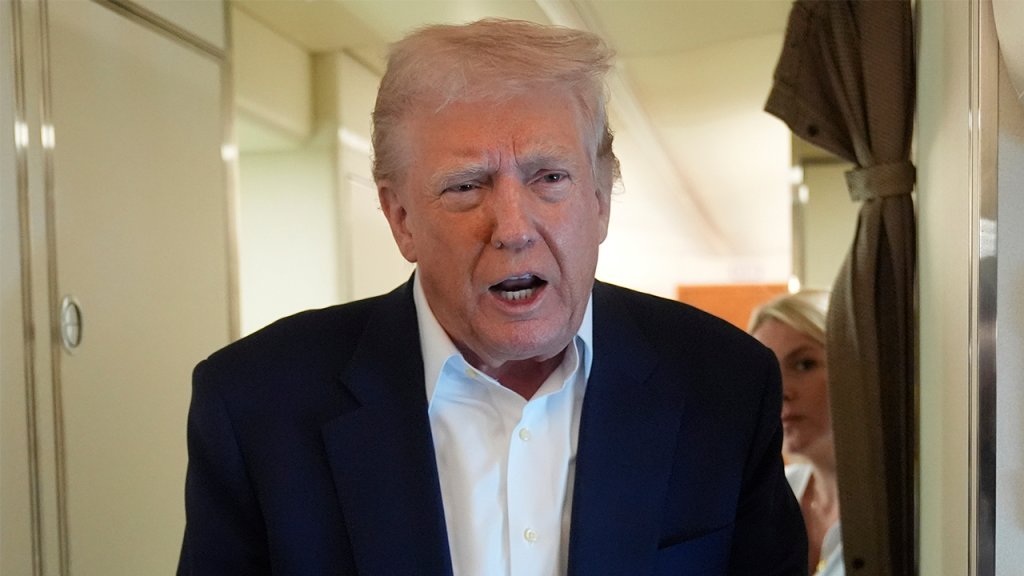In a recent statement, former President Donald Trump claimed that Mexican President Claudia Sheinbaum rejected his proposal to send U.S. troops into Mexico to combat drug cartels. According to Trump, Sheinbaum is allegedly fearful of the influence exerted by the cartels within her country. Despite Trump’s assertion of Mexico’s need for assistance, Sheinbaum firmly stated that Mexico would never allow foreign military presence on its territory, highlighting a longstanding concern about sovereignty.
The exchange has reignited discussions about national security, drug trafficking, and bilateral relations between the United States and Mexico. Trump’s remarks come amidst ongoing challenges posed by drug smuggling operations, particularly concerning fentanyl trafficking from Mexico into the U.S.
| Article Subheadings |
|---|
| 1) Trump’s Offer and Sheinbaum’s Response |
| 2) The Context of U.S.-Mexico Relations |
| 3) The Role of Drug Cartels |
| 4) Implications for National Security |
| 5) Future Prospects for Cooperation |
Trump’s Offer and Sheinbaum’s Response
In a press interaction on Air Force One, Donald Trump articulated his belief that U.S. intervention could significantly aid in the fight against drug cartels in Mexico. He suggested that President Claudia Sheinbaum was overly fearful of these criminal organizations, saying, “She’s so afraid of the cartels she can’t walk.” Trump expressed his willingness to send American troops to Mexico, emphasizing that such a move would be an honor.
In response, President Sheinbaum asserted her commitment to Mexico’s sovereignty, directly challenging Trump’s proposition. She communicated during a phone call that the Mexican government would “never accept” the presence of foreign military forces on its soil. Instead, she suggested collaboration based on mutual respect: “We can collaborate. We can work together, but with you in your territory,” she reportedly said.
The Context of U.S.-Mexico Relations
The relationship between the United States and Mexico has been fraught with complexities, especially concerning crime, drug trafficking, and immigration. Since Trump took office, U.S. military presence along the southern border has increased as part of a broader strategy to combat illegal immigration and drug smuggling. For instance, a directive issued by Trump earlier this year aimed to bolster military efforts in monitoring cross-border activities.
This ongoing tension is underscored by a history of U.S. influence in Mexican affairs, often viewed with skepticism and resentment by many in Mexico. The country asserts its right to govern internally without external intervention, leading to a delicate balance in addressing shared challenges like drug trafficking.
The Role of Drug Cartels
Mexican drug cartels have become notorious for their significant role in the distribution of illicit substances, particularly fentanyl, which has contributed to the opioid crisis in the U.S. According to recent statistics, over 70,000 Americans die annually from opioid overdoses, with a substantial portion linked to fentanyl sourced from Mexico.
Trump described these cartels as “evil” and highlighted their detrimental effect on American society. He argued that their activities are not only organized crime but also threats to national security. U.S. Northern Command has been tasked with deploying additional resources to combat this transnational issue, which has direct implications for both nations.
Implications for National Security
The discourse surrounding U.S. military intervention in Mexico raises critical questions about national security and foreign policy. Advocates for U.S. involvement argue that a more robust military presence is necessary to address the grave threats posed by these cartels. Critics, however, caution that such actions could exacerbate tensions and undermine Mexico’s sovereignty.
Trump’s designation of various gangs and cartels as “foreign terrorist organizations” has provided law enforcement agencies with additional legal frameworks and resources to counteract their operations. This categorization demonstrates a shift toward a more aggressive stance in combating drug-related crime.
Future Prospects for Cooperation
Looking ahead, the relationship between the U.S. and Mexico will likely involve a combination of collaboration and caution. Trump’s recent remarks have opened discussions about how both countries can effectively share intelligence and work together to combat drug trafficking without compromising Mexican sovereignty.
As Mexico continues to navigate its internal security challenges, it will also need to balance international relations with its immediate concerns about crime and public safety. This multifaceted approach will be critical in fostering a more secure environment for both nations.
| No. | Key Points |
|---|---|
| 1 | Trump proposed sending U.S. troops to combat Mexican drug cartels, which he claims has been rejected by Sheinbaum due to her fears of the cartels. |
| 2 | President Sheinbaum emphasized Mexico’s sovereignty, stating that her country would not accept foreign military presence. |
| 3 | The ongoing issues of drug trafficking and illegal immigration remain critical concerns in U.S.-Mexico relations. |
| 4 | Cartels continue to pose a significant threat through the distribution of fentanyl in the U.S., impacting public health and safety. |
| 5 | Future cooperation will depend on mutual respect for sovereignty while addressing shared security threats effectively. |
Summary
The recent exchange between Trump and Sheinbaum highlights the complexities and challenges facing U.S.-Mexico relations regarding national security, drug trafficking, and sovereignty. As both countries navigate these issues, mutual cooperation and respect will remain crucial for effectively combating the threats posed by drug cartels while safeguarding each nation’s sovereignty.
Frequently Asked Questions
Question: What was Trump’s proposal to Mexico regarding U.S. troops?
Trump suggested sending U.S. troops to Mexico to assist in combating drug cartels, claiming that this would help address narcotrafficking issues.
Question: How did President Sheinbaum respond to Trump’s offer?
Sheinbaum firmly rejected the proposal, stating that Mexico would “never accept” foreign military forces on its territory while emphasizing Mexico’s sovereignty.
Question: What impacts do drug cartels have on U.S. national security?
Drug cartels are involved in the distribution of dangerous substances like fentanyl, contributing to a public health crisis in the U.S. and prompting national security concerns about illegal immigration and crime.


